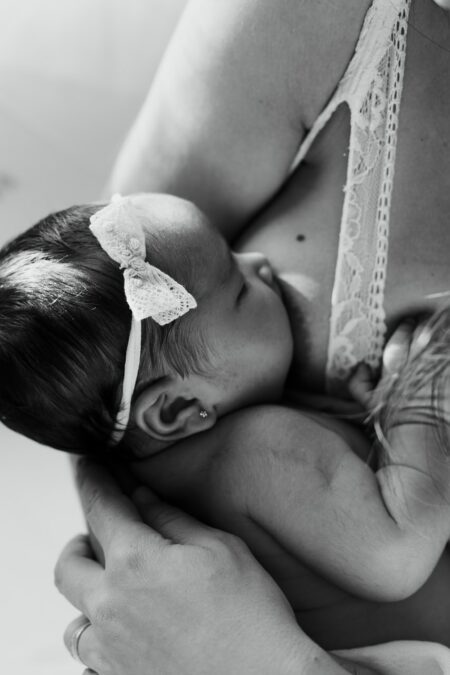
Being a mother is not always easy, especially in the first days after giving birth, but rest assured that habits come quickly. As far as breastfeeding is concerned, one principle prevails above all else: give the breast at your baby’s request, i.e. you should offer to feed as soon as your baby shows the first signs of hunger. However, these signals sent by baby are not always completely legible, in this period which is however crucial for his development. Here are some tips on how to determine the ideal spacing between feeds.
Breastfeeding on demand
When it comes to breastfeeding your baby, the basic principle is quite simple: follow your baby’s wishes. This is what we call on-demand breastfeeding. During the first 3 months after birth, the baby is still very fragile and therefore particularly sensitive to lack of food.
There is no set spacing between feeds that applies to all babies: each healthy baby finds his own rhythm, so you should follow that rhythm. Generally speaking, it is reasonable to expect to breastfeed between 8 and 10 times every 24 hours in the first few days. Babies’ stomachs are still small and need to be fed frequently. Your breast milk is also much more digestible than other types of milk, so your baby can become hungry again very quickly, within an hour. You can then perfectly well give him the breast again immediately.
But breastfeeding is not only about the need for milk. It is also a way for baby to regain contact with his mother’s skin. For you, regular breastfeeding not only promotes the lactation process from the very first moments of milk production, but also prevents breast engorgement, i.e. an inflammation of the breast of varying intensity that can, among other things, be caused by the spacing of feeds.
It should also be noted that at regular intervals at 2 weeks, 4 to 6 weeks, 3 months and 6 months, the baby goes through growth spurts for a few days, causing him to demand more milk. The same principle applies: follow your baby’s desires and do not hesitate to give him a feed every hour if he asks for it. During these periods when your baby demands a feed very regularly, don’t hesitate to alternate between your right and left breast to produce a sufficient quantity, but always with delicacy so as not to rush your baby.
Know how to interpret your baby’s signs of hunger
The signs are not easy to notice when you become a parent, but rest assured, it’s just a matter of habit.
These signs are already noticeable when your infant is sleeping, for example, if your baby is a good sleeper. Your baby may have fluttering eyes with closed eyelids, or may make small facial expressions or sucking movements. Don’t hesitate to wake him up by gently stroking his tummy, holding him or gently changing his diaper to prevent him from becoming too hungry when he wakes up. This could cause him to become more tired or upset, which could make feeding more difficult. When your little darling wakes up, she should instinctively reach for the breast.
When your baby wakes up on his own, there are some sure signs. For example, he may bring his hands to his mouth, make little babbling sounds, move his head from side to side, half-open his mouth and stick out his tongue or salivate profusely. After a while, your baby will start crying for food, which is the strongest sign of hunger. But it’s best not to get to this stage to avoid overexertion and upset.
When your baby wakes up, gently offer your breast until he or she pulls away, taking care not to go too fast: baby may simply be catching his or her breath between feeds.
A different interval as your child gets older
As your baby gets older, you’ll naturally get used to the rhythm and cues your baby gives you for feeding.
However, you should know that these rhythms do not remain constant and evolve over time. After an average of 3 months, feedings become a little less frequent and shorter than in the first moments after giving birth.
The average duration of breastfeeding in France is 4 months (17 weeks), but the WHO recommends that babies be exclusively breastfed for the first 6 months after birth and then gradually decrease until the age of two. But once again, there is no real general rule on this point and each baby is different according to his character. And that is also the beauty of being a parent.

